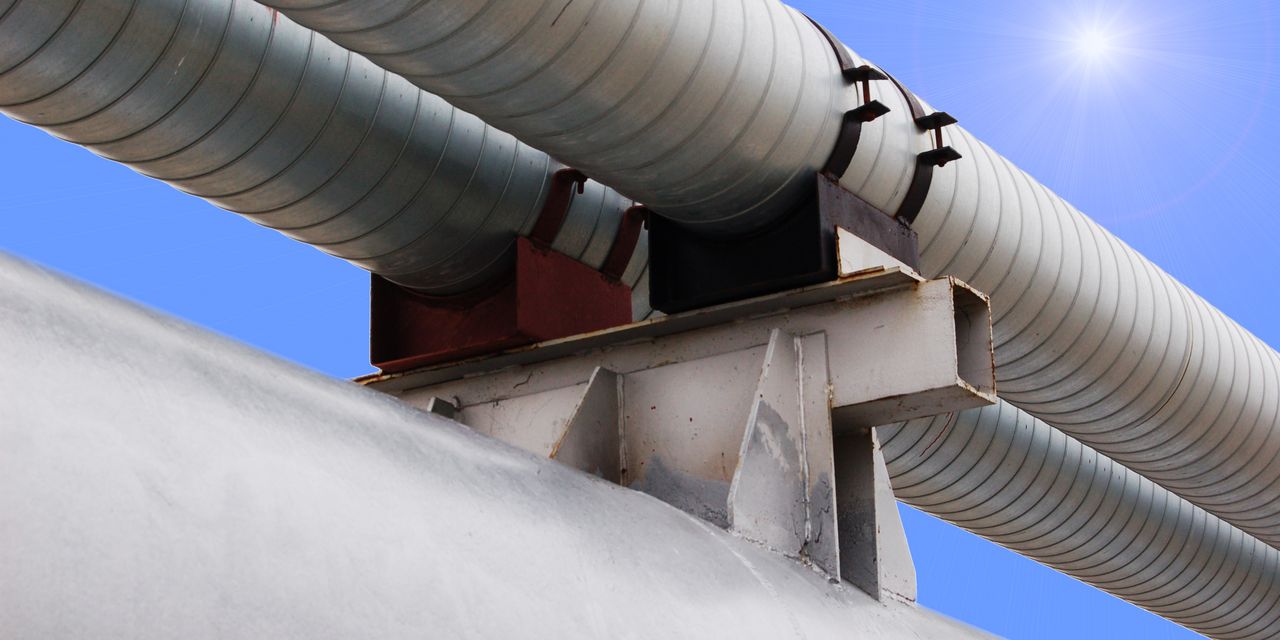The debt ceiling agreement that has tentative support in the House of Representatives includes a provision that’s particularly good for Equitrans Midstream, a small energy company that owns the largest stake in a natural gas pipeline that runs through Virginia and West Virginia.
Equitrans
(ticker: ETRN) shares rocketed 36% higher on Tuesday. The so-called MVP Pipeline is now more likely to win approval because of language in the agreement that would limit judicial review and speed up federal permits.
Other companies that own a stake in the pipeline include
NextEra Energy
(NEE),
Consolidated Edison
(ED),
AltaGas
(ATGFF) and
RGC Resources
(RGCO). The latter two were both up more than 5%.
“I am proud to have fought for this critical project and to have secured the bipartisan support necessary to get it across the finish line,” said Sen. Joe Manchin, Democrat of West Virginia, in a statement.
Manchin has been fighting for the pipeline for years, along with advocating for a broader set of permitting changes that he says would make energy costs go down. So far, the debt ceiling doesn’t look like it will include those broader changes beyond the MVP Pipeline. Environmentalists who have opposed the pipeline say it would lead to decades of rising carbon emissions and air pollution at a time when federal officials need to be cutting emissions.
The 303-mile pipeline, which is almost completely built, has been sitting in legal and regulatory limbo for five years because of federal court cases and environmental reviews. Its latest setback came after a federal court vacated a West Virginia water quality review.
“The MVP project has almost certainly gone through more environmental review and scrutiny than any natural gas pipeline project in U.S. history,” said CEO Thomas Karam in the company’s latest earnings statement.
In response to the debt ceiling deal, pipeline spokeswoman Natalie Cox wrote that “we are grateful for the full support of the White House, as well as the strong leadership of Democratic and Republican legislators.” She added that the pipeline could be in service by the end of this year.
The pipeline operators say they will buy enough carbon offsets to make the project’s operations carbon-neutral for its first decade.
Equitrans already owns pipelines and other natural gas infrastructure throughout the Appalachian region, including in Pennsylvania, Ohio and West Virginia. It spun out of natural gas producer
EQT
(EQT) in 2018.
EQT remains a major customer for the company, with commitments to use the new pipeline if it gets approved. EQT stock, however, was down 4.7% on Tuesday, because falling natural gas prices were causing the broader industry to drop.
Jeoffrey Lambujon, an analyst at Tudor, Pickering, Holt, said in an interview that the pipeline probably wouldn’t boost EQT’s free cash flow in the near term because the cost of gas transmission would offset the company’s sales gains. For the pipeline to be a game-changer, it would likely have to be extended to more markets, so that EQT can reach a wider customer base. EQT didn’t respond to a request for comment on the pipeline.
Despite optimism from its proponents, the pipeline approval still isn’t a done deal. The debt ceiling deal still needs to be approved by Congress, and the pipeline could potentially face legal challenges that fall outside the deal’s parameters.
Write to Avi Salzman at [email protected]
Read the full article here




